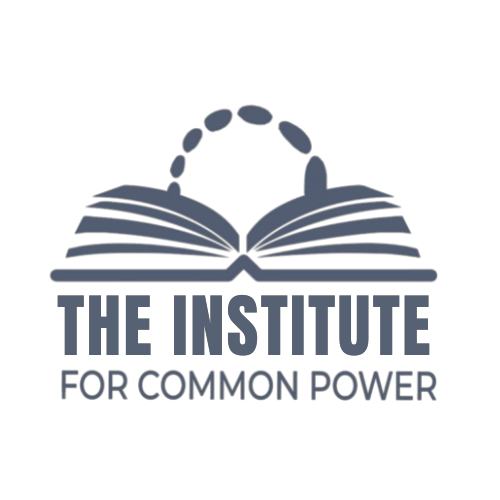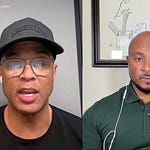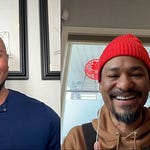Thank you for watching! In the face of unrelenting disinformation and authoritarian actions, clear truth-telling and independent media are a necessity. If you value pro-democracy journalism, consider becoming a free or paid subscriber to my newsletter. Paid subscribers empower this work and gain access to exclusive benefits. Your support makes a difference.
There are some conversations that leave you buzzing with urgency, clarity, and purpose. This one certainly did that for me.
In my latest Substack Live, I sat down with Dr. Terry Anne Scott, an award-winning historian, scholar of African American history, and Director of the Institute for Common Power. It was a fast-paced, wide-ranging discussion about Trump’s attacks on history, the backlash against Black progress, Trump’s ideological ties to the Confederate Lost Cause, and why the story of Emmett Till still cuts to the heart of American democracy in 2025.
Dr. Scott framed this moment as both a crisis and an opportunity: our democracy is being assaulted by an administration that embodies white supremacist ideas, but we’re also seeing a mounting, organized resistance that has real power.
Early in our conversation, Dr. Scott talked about “historical empowerment” – the idea that when we truly understand the past, we see ourselves in the people who fought back. If an 11-year-old Joanne Bland could cross the Edmund Pettus Bridge on Bloody Sunday, get up, and keep fighting, what excuse do we have?
That lens is essential for understanding Trump’s project. Trump’s attacks on fundamental Civil Rights, his efforts to suppress Black history, his open affection for the Confederacy and “Lost Cause” mythology, they’re not random culture-war skirmishes. They’re an attempt to roll back the progress of our multicultural democracy in an echo of the reversed gains after Reconstruction.
This is also a backlash to the Civil Rights movement and the racial re-education sparked by the 2020 protests after the murders of George Floyd, Ahmaud Arbery, and Elijah McClain. The point is to delegitimize the political power of marginalized groups and erase the stories that show how ordinary people have challenged and changed unjust authoritarian systems.
That’s where Emmett Till comes in.
Emmett was a 14-year-old Black boy kidnapped, tortured, and murdered in Mississippi in 1955 after Carolyn Bryant lied about him. His killers were acquitted in just over an hour, then later bragged about the murder to Look magazine. Emmett’s mother, Mamie Till-Mobley, made the decision to take the privacy of her pain and make it public—insisting on an open casket and telling the world, ‘I want all the world to see what they did to my boy.’
That choice helped catalyze the modern Civil Rights movement. Dr. Scott reminded us that countless activists, from Muhammad Ali to members of SNCC, cite Emmett Till’s murder as the moment that mobilized them, just like Trayvon Martin’s murder helped activate my own political journey. And yet, today, Emmett’s memory is still under attack: his historical markers in Mississippi have been repeatedly shot up and vandalized, one bullet-riddled sign had to be replaced with a bulletproof version, and the Trump administration's targeting of the Smithsonian puts Emmett Till monuments at risk. You don’t go to that length unless you’re deeply afraid of what honest history makes people see.
This is why the Institute for Common Power is holding an Emmett Till teach-in this Sunday. You can register here. It’s being held on Mamie Till-Mobley’s birthday, live from Mississippi, in partnership with the Emmett Till Interpretive Center and the Mississippi Civil Rights community.
Dr. Scott also talked about her other work with the Institute for Common Power. The Institute runs lectures and workshops with leading scholars, organizes powerful learning tours through the Deep South (including the Common Power/Seahawks trip I joined last year), and holds public teach-ins that directly confront efforts to erase Black history—like their 24-hour event in Florida after DeSantis’s attacks on African American studies.
Later in the conversation, we zoomed out to the broader political landscape, and neither of us sees this as a one-way slide into authoritarianism.
Yes, Trump’s rollback of DEI and even basic anti-discrimination safeguards is part of a larger effort to restore a “Lost Cause” version of America. Yes, the attacks on universities, K–12 teachers, and local school boards are designed to chill honest discussion of race, power, and democracy. But we’re also seeing a backlash to the backlash: voters rejecting extremists in 2025’s elections, judges acting as crucial guardrails, communities organizing around local races, and more people refusing to stay neutral. As Dr. Scott put it, “Evil falters under the weight of good,” if we keep pushing.
The moral arc of the universe bends toward justice, but only if we push it.
That’s the real through-line of this conversation: history is not something we passively observe; it’s something we’re actively shaping. The story of Emmett Till isn’t just a tragic chapter we’re obligated to remember - it’s a call to action across generations. Mamie Till-Mobley refused to let her son’s death be buried in silence, and neither should we.
Today, we honor that legacy not just by mourning, but by organizing: defending education, pushing the truth, supporting teachers, showing up for democracy, and refusing to let Trump’s war on history define who we are. If the Civil Rights heroes could do it in their era, with far fewer legal protections, surely we can do it in ours.















